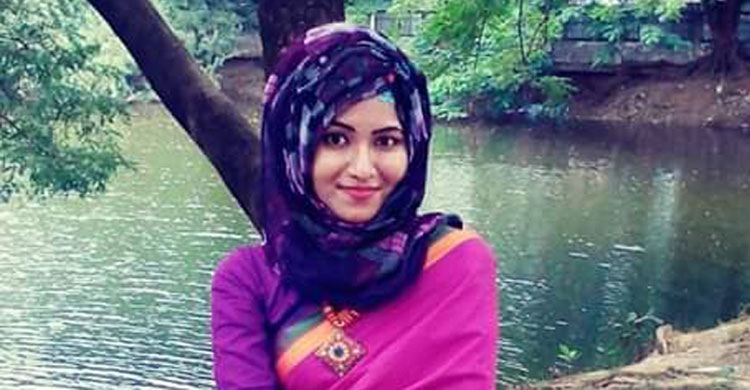Justifiability of Criminals’ Right to Defend: A Legal Inquisite

Evnat Bhuiyan :
“Why murderers or rapists are given the scope to defend themselves? How a vigilant lawyer can serve such criminals? Don’t they have ethics?” Or, “why those criminals are even given a ‘right’?”
A tendency of public objectification or moral boycott towards the learned defence counsels of our country is seemed recently, specially cases which enkindle the public sentiment. Be it the ruthlessness of Nusrat murder case or the remorseless Samia rape and murder case – after observing some of the recent criminal occureneces, these are the most random peeps of the common minds. Lack of minimum legal knowledge leads the public to do the lawyers’ character assassination which are seen in social media these days. The dichotomy that, lawyers should not stand for heinous criminal- is completely a wrong concept. This can be analysed from both of the angles – criminals right to consult a lawyer and the lawyers right to take cases as per his choice.
Firstly, it is solely the lawyer who decides- which case he is going to deal with. Bangladesh Legal Practitioners and Bar Council Order and Rules,1972 has articulated in Chapter II, Section 9, Bangladesh Bar Council Canons of Professional Conduct and Etiquette, that- It is the right of an advocate to undertake the defence of a person accused of crime, regardless of his personal opinion as distinguish from knowledge, otherwise innocent persons, victims merely of suspicious circumstances, might be denied proper defence.
There is no rule which bars a lawyer to take a case, lawyers are provided full liberty in this regard. Section 12 of the same chapter stipulates that- No fear of judicial disfavour or public unpopularity should restrain him from the full discourage of his duty.
Secondly, there is no legal provision to try a case by the Court without a ‘defence’ (party to the lawsuit against whom the case is filed). Even if the other party fails to avail a lawyer, it is the supreme legal duty of the court to appoint a defence counsel. Moreover, in dealing with cases of highest penalty, if there is no lawyer to stand, the State itself appoint a lawyer for fair trial, which is called ‘State Defence’.
In absence of a defence in a case, there is no scope to hear a case ‘fairly’, to adjudicate ‘justly’, as it will not be possible to take the statement of the defence witnesses, to calculate and measure the defence’s evidences- which are blockades for the Court to find the truth, the prosecution might be arbitrary and try to mislead the Court, in consequence, may vitiate the trial and lead to injustices.
A famous doctrine “Let thousands of guilties go unpunished, but not a single innocent be punished”, popularly known as the doctrine of Presumption of Innocence, denotes that- “The accused is innocent until proven guilty.”
It means a Court will not declare an accused as convicted of an offence until he is proved to be guilty. The prosecution has a burden of proof ,that is, to prove the accused as guilty and under the duty to prove it beyond reasonable doubt. If a slightest doubt is raised by the defence with adequate proof, the accused is entitled to get acquitted. This points out the finest and deep message of our criminal justice system to be so fair and just that not a single person get punished for an act he did not committed ever.
Another maxim called Audi Alteram Partem signifies that, “No man must be condemned unheard”, which means no person can be punished by the Court without listening to the other party of the case, without giving the opportunity to the accused (other party) to prove his case. A decision given by a judge will be regarded as arbitrary, unjust and partial if either of the party to the case (prosecution or defence) is not given the right to present his case. Thus, every criminal has the right to defend himself and the Judge must abide by this inviolable principle of natural justice while adjudicating.
Right to defend as the fundamental right, the Constitution of Bangladesh enshrines in Article 33 (1), which states that- No person who is arrested shall be denied the right to consult and be defended by a legal practitioner of his choice. Article 35(5) furnishes detainee’s right to make representation in the earliest possible time against the order of detention.
Section 340 of The Code of Criminal Procedure, 1898, says- To defend an undefended accused charged with capital offence, an advocate should be appointed in such a time as to enable him to study the case and provided with the papers ordinarily allowed to the accused. He should be of sufficient standing and able to render assistance. This provision has been observed in the State vs. Hanif Gani 45 DLR 400 case.
Right to protection for criminal defendants has also been contemplated in Article 14(2) of the International Covenant on Civil and Political Rights, 1969, stating- Everyone charged with a criminal offence shall have the right to be presumed innocent until proven guilty.
In every litigation, there must be a victim and an accused and they have to approach with their claims by a representative , that is a lawyer. Court has a particular procedure to approach in any case, any breakage in any of its rules and procedure will prejudice the ‘Due process of law’ and hammar upon the entire justice system. It is high time we should know the law provisions before commenting indiscriminately without due knowledge.
A noteworthy quote of renowned Indian criminal (defence) lawyer, Ram Jethmalani, can add an amazing conclusion here- “I decide according to my conscience who to defend. A lawyer who refuses to defend a person on the ground that people believe him to be guilty is himself guilty of professional misconduct.”
The writer is a Student, Department of Law, Jagannath University.

